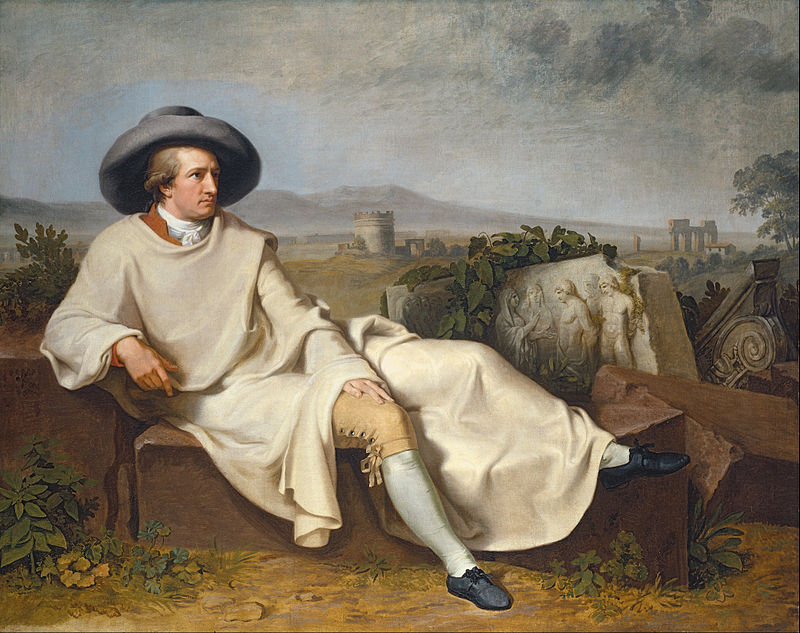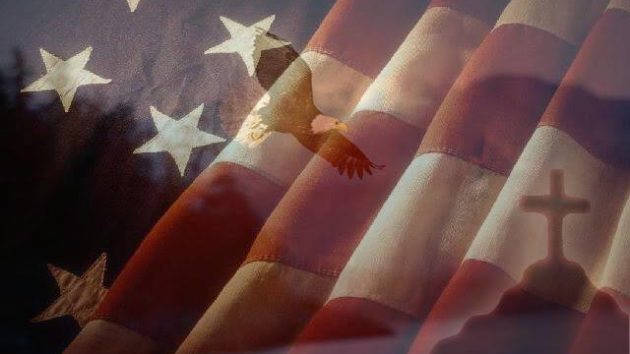Make America Christian Again
Error is a great dissipator of time and energy. I have this from Goethe – some letter he wrote to somebody else – but might easily find it said or indicated in a thousand other places. Yea, Goethe says the truth should often be repeated, in a world where error ceaselessly repeats.
This maxim comes back to me by courtesy of my very bad habit of reading the news – itself a great dissipator of time and energy. The news is vexing. Surely I need not give examples.
There are holy fools, though currently hard to find; there are trivial fools; and then there are the malicious ones. These last are great dissipators, not only of themselves. It would be well if we could utterly ignore them, but they tend to be ambitious, too. It takes time and energy to stop them.
In America today (as a Canadian I count myself into the continent), it would seem that error is constitutionally enshrined. It is expressed as the separation of Church and State. This meant one thing to its Christian authors, means another to their distant heathen descendants.
By excluding from public life the very principles upon which American society was founded, error is awarded a kind of monopoly, to be enforced by myriad government departments.
Now, we are mostly Catholic in our “safe space” here, and America’s founders (both pre- and post-Revolutionary) were mostly Protestant. But the home truths that were formerly recognized crossed denominational lines.
Virginia, Massachusetts, and Quebec were quite distinct regions, both in church and out, yet to an observer from China they would be much the same. The notion of man in a fallen world, born into the slavery of sin and needing redemption, was common to all factions. So many particulars followed from this.
Among the few movies I have seen was Nashville, directed by the late Robert Altman for the U.S. Bicentennial. Among its delicious sub-plots was the odyssey of a pretentious BBC journalist (played by Geraldine Chaplin), in search of “the real America,” and constantly getting it wrong.
On a Sunday morning, she has placed herself in a huge parking lot for yellow school buses. She finds deep symbolism in these sleeping metal hulks.
But the camera then takes us to the various churches – Baptist, Methodist, Episcopal, etc. – where the film’s comic stock characters are found. All are singing and praying and listening to sermons. We are shown a “real America,” which the toff from England has entirely overlooked.

I mention the movie because it was so recent; 1976 is not so long ago. I can remember it myself, and I’m only in my sixties. I can remember the fact of church attendance from my Ontario boyhood, and that it was the North American “normal.” I was not raised by conscious, church-attending Christians, but realized that this was abnormal.
My parents were, in a sense, old-fashioned liberals, anti-clerical by disposition, and my mama, in fact, a conscious atheist, but I don’t think it ever occurred to them that the religious culture of the whole continent had to be destroyed. Even mama would say, “People who believe, behave better.”
They take for granted things people who don’t have to think about – with all the mistakes that follow when one must re-invent morality from scratch. The believers had basic notions about right and wrong, installed soon after birth. Even the children from the faithless homes absorbed these from the larger society.
Hypocrites, yes, most of the believers; and they were atheists, too, for all practical purposes, in the moments when they forgot that God is watching. This is not the Christian but the human condition: we are frequently in error.
Which is why Goethe – himself some kind of old-fashioned liberal – says we return to truth as to waking, from sleep, feeling refreshed. Sunday, “every bloody Sunday,” was our wake-up call.
I am not the sort of naïve chump who thinks America simply thought again about religion and decided in our democratic way that it was inconvenient and disposable. It took a lot of arduous work to undermine, in the progressives’ “long march through the institutions.” It took a lot of capitulation from our guardian figures of authority.
And as everyone knows, and every progressive likes to chant, history does not move backwards. There is nothing about the old America that will spontaneously re-assemble. It never assembled itself in the first place but was a product of human aspiration and work, dating back long before its discovery and settlement.
A great deal has been overthrown in a couple of generations. We are not discussing a generational transition, but a civilizational one. When we disembrace Christianity, our Christian past becomes incomprehensible to us. Our ancestors become impossibly strange. Their church attendance becomes an alienating factor. The surviving Christians become an exotic minority cult, in need of careful government watch and regulation.
The slogan, “Make America Great Again” may have worked through the last presidential election, but it is empty. It assumes there was once an America that was great. Perhaps there was, but this is no longer America. “We’re not in Kansas anymore.”
Greatness likewise becomes an empty concept unless the sense of the term can be specified. Do we mean “great” in the sense of large? But we are already large. Do we mean it in the sense of economically vibrant? But we are already unprecedented in our production of tawdry goods. Or do we include in our specification some sense of the noble and worthy?
Obviously, this last is meant, even through confusion. But without a clear conception of the noble and worthy we are still at a loss. And this will not come from nothing.
Which is why I propose the alternative slogan, “Make America Christian Again.” And since history does not move backwards, let’s focus on making it Catholic this time. For otherwise we’ll dissipate time and energy.
![]()
David Warren
David Warren is a former editor of the Idler magazine and columnist with the Ottawa Citizen. He has extensive experience in the Near and Far East. His blog, Essays in Idleness, is now to be found at: davidwarrenonline.com.
EDITORS NOTE: © 2017 The Catholic Thing. All rights reserved. For reprint rights, write to: info@frinstitute.org. The Catholic Thing is a forum for intelligent Catholic commentary. Opinions expressed by writers are solely their own.



Leave a Reply
Want to join the discussion?Feel free to contribute!